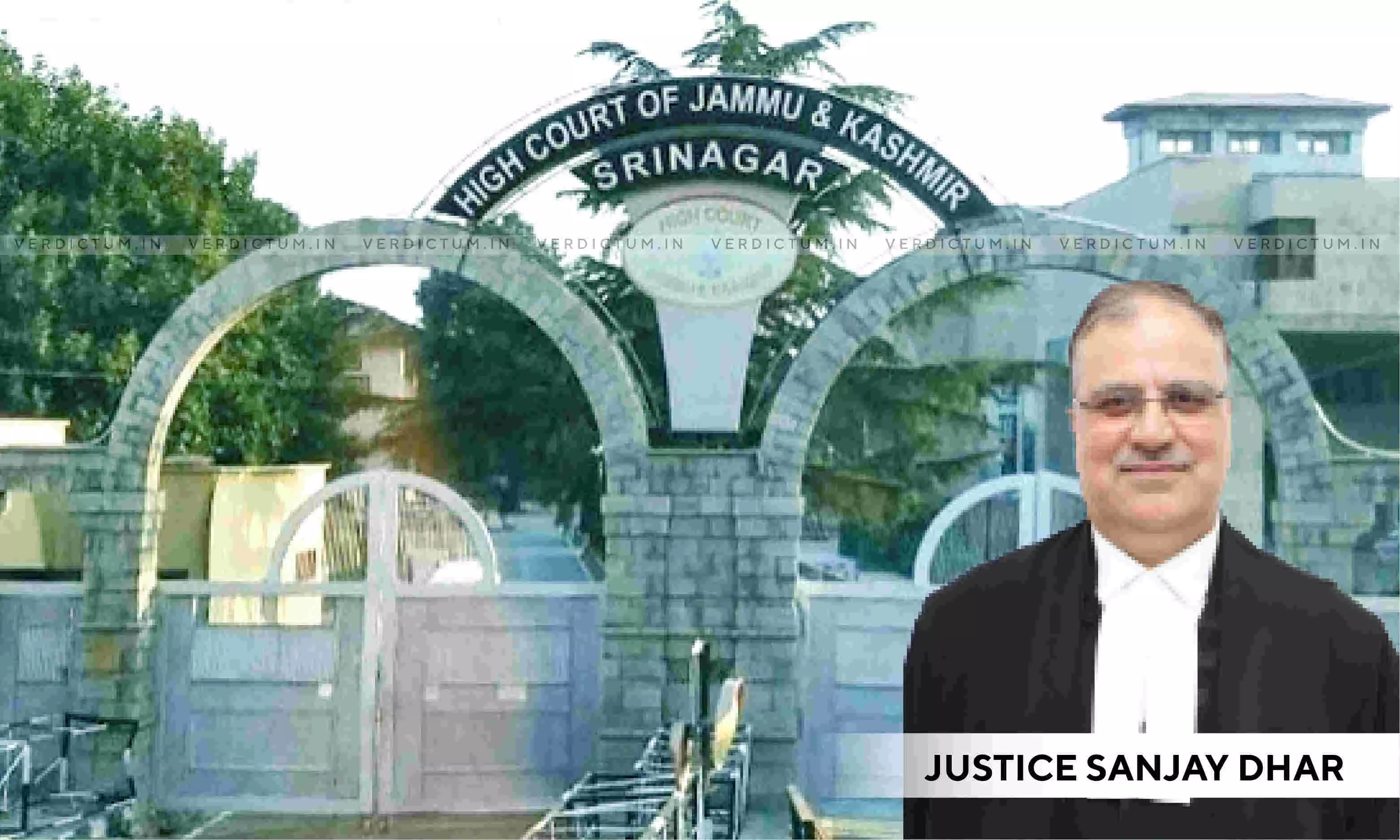
Justice Sanjay Dhar, Jammu and Kashmir and Ladakh High Court
Long Possession Of Gratuitous Land Does Not Grant Legal Rights To Occupants: J&K&L High Court
 |
|The Jammu and Kashmir and Ladakh High Court ruled that merely occupying land gratuitously, even for an extended period, does not grant any legal title over the property.
This observation arose from a case where an industrial unit had been allowed to occupy a piece of land without any formal lease or rental agreement. Although the industrial unit had been using the land for around two years, it did so without any formal contract, and the land was owned by a third party. The industrial unit initially had a lease for two kanals of land but was using an adjacent plot for additional activities without formal permission. While it had paid ground rent for the use of the adjacent plot, it was not granted a formal allotment by the state authorities. Despite several requests, the industrial unit was denied any formal claim to the additional land, which led the authorities to accuse it of encroaching on the property.
The industrial unit filed a civil suit, seeking an injunction to prevent the state authorities from interfering with its occupation of the land. In addition, the unit sought interim relief, but the civil court dismissed this application, noting that the matter was already under consideration in the High Court. The unit then appealed to the High Court for interim relief.
A Bench of Justice Sanjay Dhar said, "A person holding a premises gratuitously and whose initial entry in the premises is questionable, would not acquire any right or interest in the property and even long possession in that capacity would be of no legal consequence,"
The Court referred to a key Supreme Court ruling from 2012, Maria Margarida Sequeira Fernandes and Ors. vs. Erasmo Jack De Sequeira, which held that a person who occupies premises without paying rent or having a formal lease or license agreement does not acquire any legal rights over the land. The Court affirmed that, in such cases, the judiciary is not obliged to protect the possession of someone who occupies property gratuitously, regardless of how long they have been in occupation.
Advocate Nisar Ahmad Bhat appeared for the appellant while Government Advocate Zahid Qais Noor appeared for the respondents.
The Court stated that if a person enters and occupies land in a questionable manner, and does so without formal consent or legal authorization, they do not gain any right, title, or interest in the property, even if their possession lasts for an extended period. The Court stressed that only those with valid legal agreements—such as a rent agreement, lease, or license—can seek protection for their occupation. The Court reiterated that occupation without such formal agreements would not create any legal rights, and prolonged possession would not alter this legal stance.
The High Court emphasized that the industrial unit’s occupation of the land was unauthorized, as it had no formal agreement for the additional plot of land. It rejected the argument that the unit was entitled to protection due to its continued possession, pointing out that the land belonged to a third-party migrant, and no legal rights had been created in favor of the unit. The Court also noted that no prima facie case existed to justify granting an interim injunction.
As a result, the High Court upheld the civil court’s decision to dismiss the application for temporary relief, effectively denying the industrial unit’s claim to remain in possession of the disputed land.
Cause Title: M/S M. R. Industries v. State of J&K & Ors.